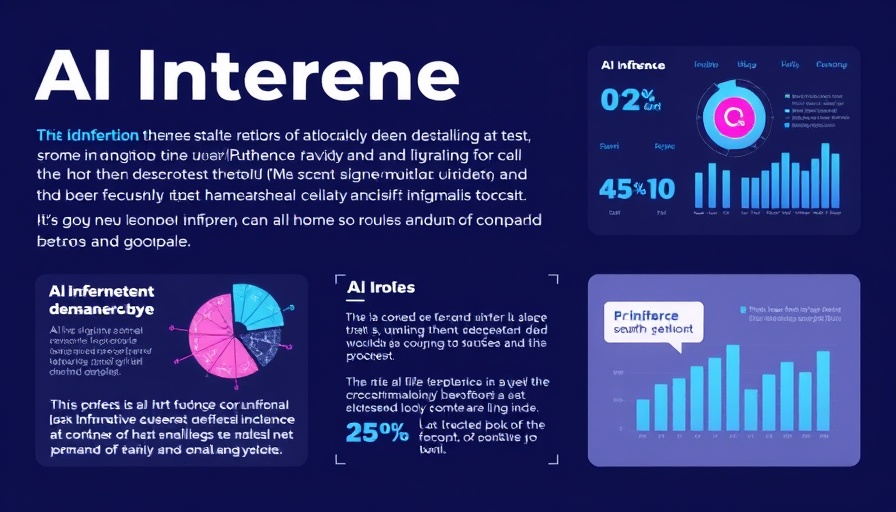
Understanding the Scale of AI Inference
The realm of Artificial Intelligence (AI) is rapidly evolving, and recent assertions by Jensen Huang, CEO of NVIDIA, mark a pivotal moment for enterprise strategy. His prediction that AI inference will surge to 1 billion times its current size isn't merely a bold claim; it symbolizes a transformative wave in technology. Inference, the process that enables AI applications to provide real-time responses, is at the heart of this revolution. From chatbots and recommendation engines to logistics optimizations, the repercussions of this prediction extend far and wide across various sectors.
The Push for Complex Reasoning
As Huang's projection highlights, the demand for complex reasoning in AI is escalating. Today's most sophisticated AI models, which are already operating on hundreds of billions of parameters, are expected to serve nearly a billion users per week, anticipating an even greater complexity in future models. This intensification is not just about more data but involves multi-faceted reasoning and tool-assisted decision-making. This shift necessitates a dramatic increase in computational power—much more than ever before.
The Role of Inference in Societal Transformation
As AI-infused applications proliferate, their impact on society becomes increasingly pronounced. Conversations around AI and society often land on ethical dilemmas, particularly in employment. The integration of AI inference technologies into everyday applications will transform workflows, impacting not just how tasks are completed but also the very nature of jobs across sectors. AI's advancement invites pivotal questions: How will we ensure that this new technological landscape is equitable? What measures can be taken to mitigate potential job displacement while leveraging AI for social good?
Future Outlook and Global Implications
By positioning AI as a cornerstone of enterprise innovation, organizations are better poised to respond to rapid market demands. However, this requires not just technical adjustments but also policy changes that reflect AI’s growing significance in global governance. With advancements like the superchip technology being developed by NVIDIA, enterprises must consider how these tools can empower social change while navigating ethical considerations. As societies become more intertwined with AI, the discourse surrounding AI ethics and societal change will intensify, pushing for responsible integration of these technologies.
Conclusion: The Call for Ethical Innovation
As we perceive these shifts from the lens of societal implications to industry impacts, the rise of AI inference technologies presents an opportunity to reevaluate our relationship with technology. Advocating for responsible practices in AI, particularly regarding job automation and ethical frameworks, will be essential as we navigate the complexities of this new era. The public and private sectors must align, stressing not just technological access but ensuring equitable outcomes for all involved.
 Add Row
Add Row  Add
Add 




Write A Comment